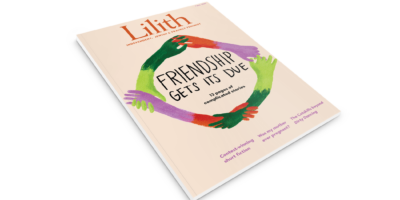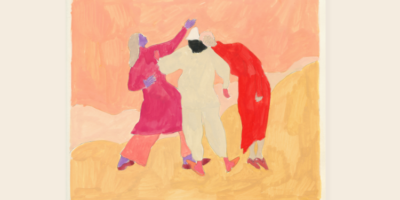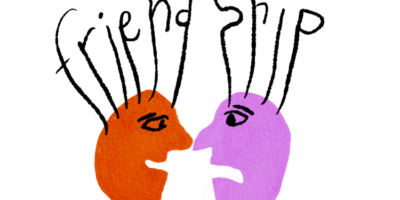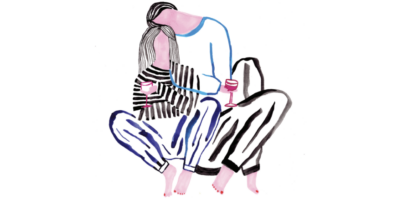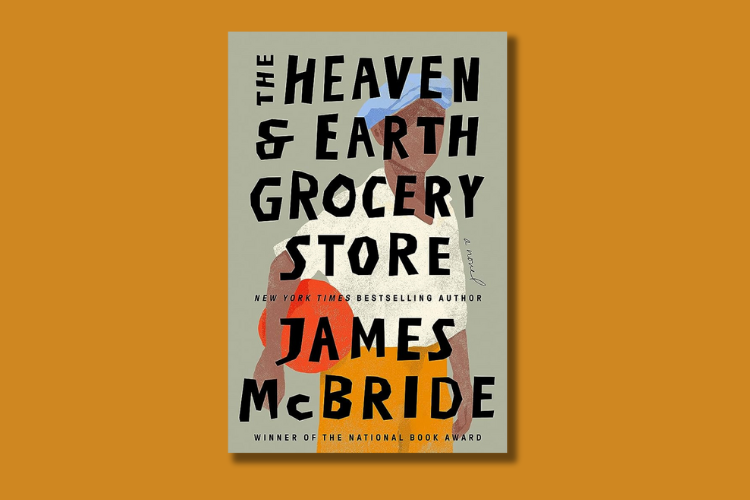
Black-Jewish Relations and a Historical Mystery
James McBride has done it again. Known for his award-winning books like The Good Lord Bird, and Deacon King Kong, the author’s latest novel, The Heaven and Earth Grocery Store (Penguin Random House, $28) is a kaleidoscopic look at Pott-stown, Pennsylvania in the 1930s, and the eclectic people who reside in its Chicken Hill neighborhood, which is, according to the novel’s narrator, “a tiny area of ram- shackle houses and dirt roads where the town’s blacks, Jews, and immigrant whites who couldn’t afford any better lived.” Part murder mystery, part great American novel, part blistering social commentary, and all heart, readers won’t be able to put the latest installment of McBride’s oeuvre down.
Despite its lack of indoor plumbing, electricity, paved roads, and sewer lines, Chicken Hill is vibrant, filled with Irish and Italian immigrants, Jews from eastern Europe (who speak a host of different languages and, in many cases, can’t stand each other), and Black Americans who migrated north in the generations following the Reconstruction period. They live on the margins of Pottstown, a town run by self-righteous white Christians whose hobbies include claiming their ancestors arrived in America on the Mayflower (not true) and marching in Pottstown’s annual KKK parade. The Heaven and Earth Grocery Store, owned by a couple named Chona and Moshe, is something of a gathering spot on Chicken Hill; Chona and her store are the glue of the area (Interestingly, both Pottstown and Chicken Hill were real places; the name “Chicken Hill” was a pejorative used by the wealthier, WASP-y Pottstown residents, a jab at the fact that many of the people on the Hill raised chickens.)
When a deaf, black 12-year-old boy named Dodo, who is the nephew of Chona’s friend Addie, is in trouble—and blamed for a violent attack against Chona—Chicken Hill comes together with a meticulously choreographed plan to rescue Dodo and avenge Chona. The last section of the book is a true master- piece of plotting and prose, each chapter revealing a small cog in the machine that the characters have worked up to com- plete their mission, even eliciting the help of a South Carolina low country oracle whose typewriter reveals the future, and a mysterious Hasid from the old country who is also tapped into otherworldly knowledge. It’s fast-paced, suspenseful, and damn funny.
Though it’s set in the 1930s, with a rich backdrop of juke joints, jazz, and shiny new Packards, the novel is timely. Anti-Jewish and anti-Black hatred are institutions older than America itself; McBride’s snapshot of post-depression, pre-World War Two prejudice is searingly relevant. And anyone who hasn’t been hiding under a rock the last year will be all-too familiar with headlines that seem to pit Jewish and black Americans against each other, or, at the very least, highlight the painful barriers that exist between the two groups.
As a son of Black Reverend and a white Jewish mother (a relationship he honored in his memoir The Color of Water) McBride is well-positioned to explore the differences and overlaps between Black and Jewish Americans, by some metrics natural allies, but also hamstrung by prejudices, assumptions, and misunderstandings bred by centuries of White Supremacy.
As Addie’s husband Nate puts it, “The law in this land is what the white man says it is, mister. Plain and simple.” Moshe considers Nate his best friend, but it’s not until tragedy strikes that he realizes the gulf that exists between them, and that the friendship he’s offered to Nate has been superficial. “Chona had never been one to play by the rules of American society,” he thinks, “Rather, she saw [the world] as a place where every act of living was a chance for tikkun olam, to improve the world.”
Moshe’s journey shows how understanding, empathy, and allyship must be actively sought and cultivated, not just assumed. In The Heaven and Earth Grocery Store, McBride demonstrates that, when these cross-cultural connections can happen in an open, honest way, it can create spaces where white supremacy begins to crumble.
Leah Grisham, Ph.D. is a freelance writer based in Cleveland. Her book, Heroic Disobedience: Forced Marriage and the British Novel, 1747–1880 (Vernon Press) is available now.

